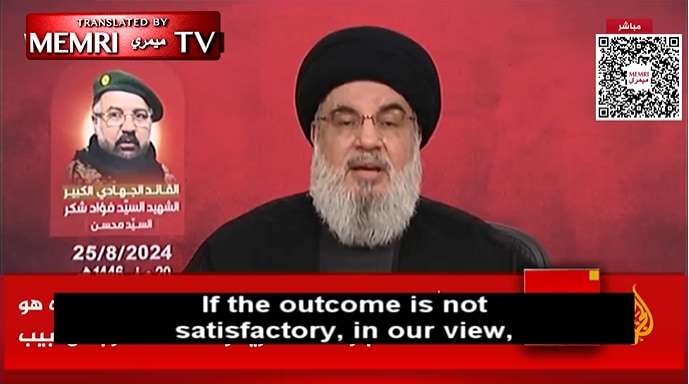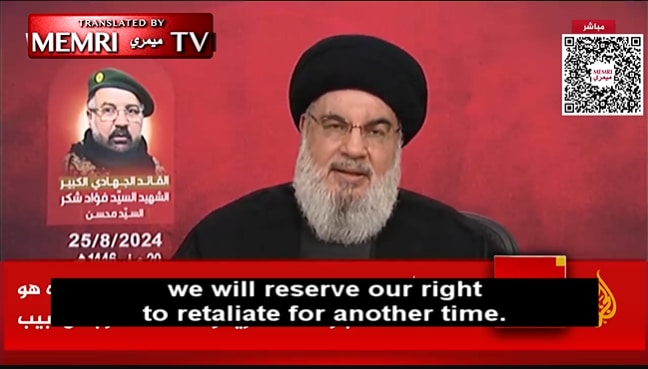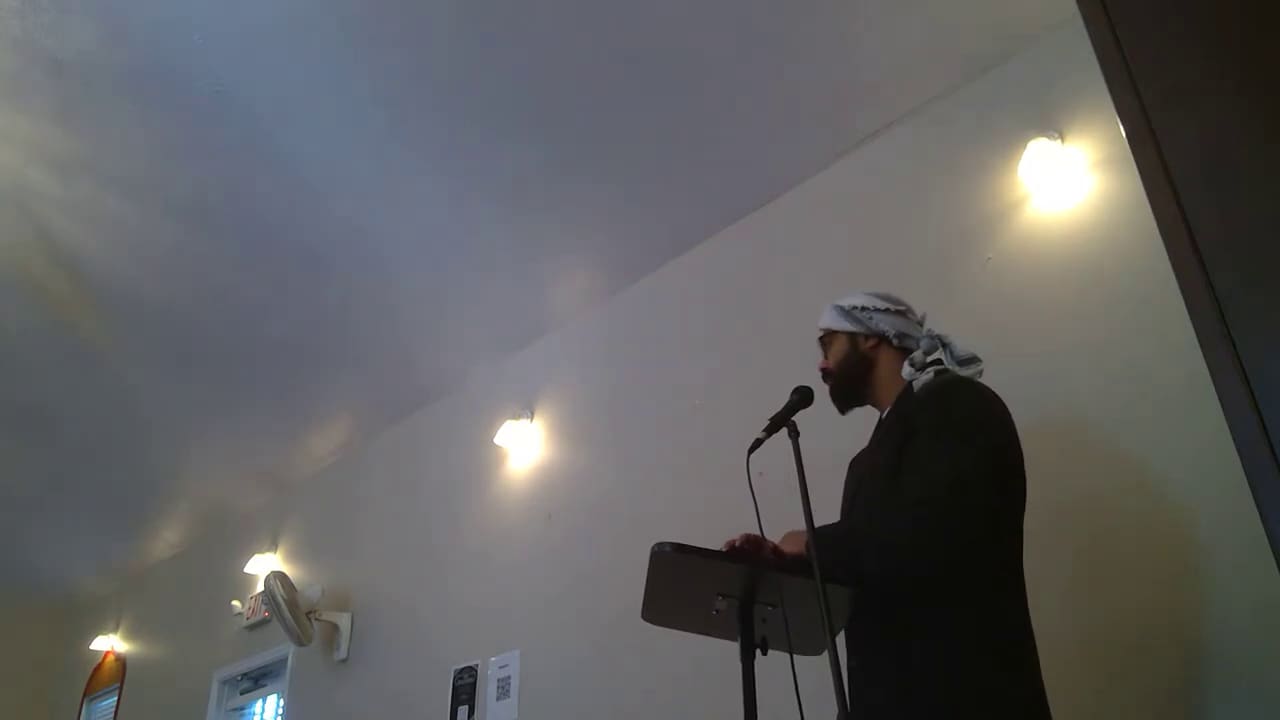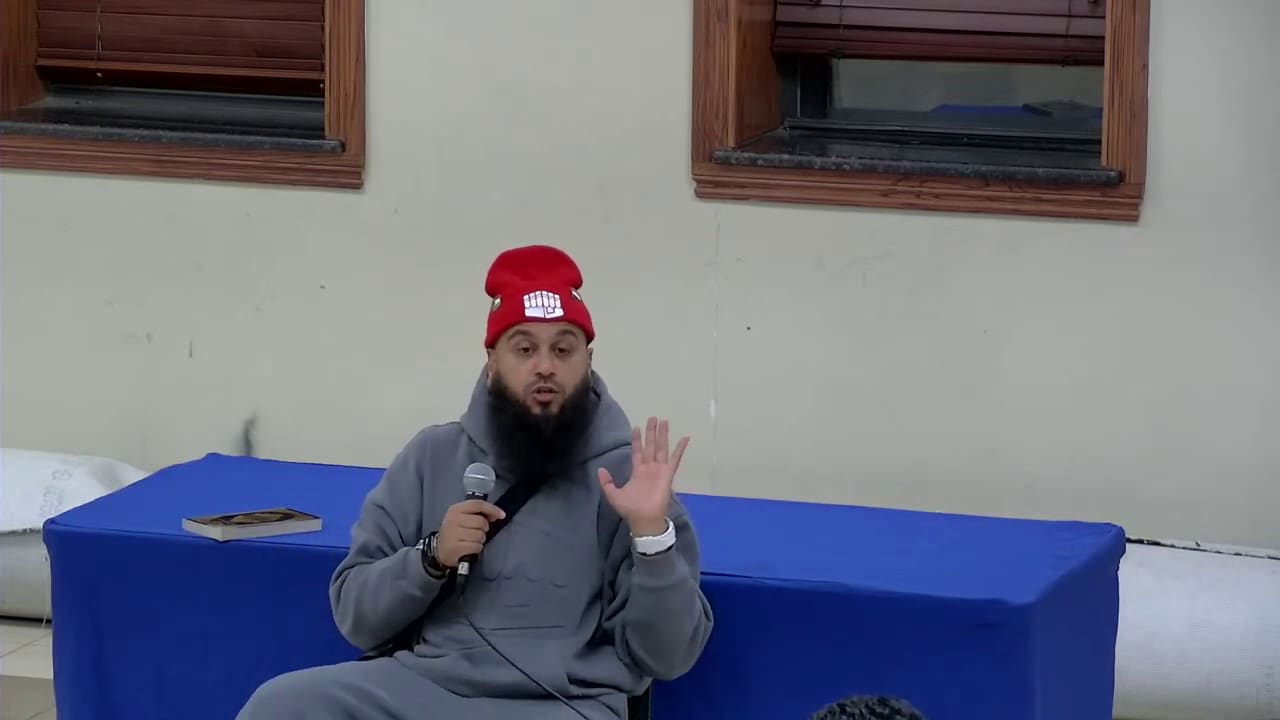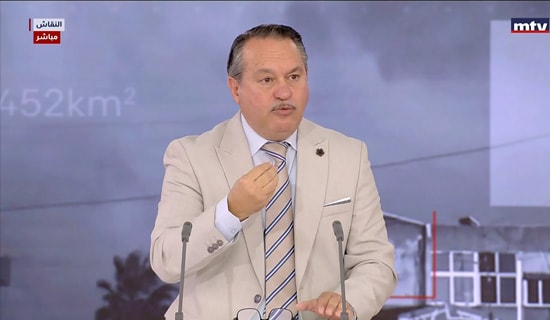
Hizbullah Secretary-General Hassan Nasrallah delivered an August 25, 2024, address that was aired on Al-Jazeera Network (Qatar), in which he discussed Hizbullah's same-day retaliation against Israel for the killing of Hizbullah military chief, Fuad Shukr, in late July. He claimed that Hizbullah UAVs successfully struck Israel's Glilot intelligence base, near Tel Aviv, and the Ein Shemer air defense base in northern Israel, but that Israel is keeping this a secret. Nasrallah explained that these targets were chosen because they were related to Shukr's killing, and he said that Hizbullah deliberately did not choose civilian or infrastructure targets. He said that this is Hizbullah's "initial response" and that the organization will continue to monitor the outcome of the attack to see if it is "satisfactory" and has accomplished its intended goals. He added that if the attack was satisfactory, then Hizbullah's retaliation is complete, but that it reserves the right to retaliate again in the future if it is not satisfactory.
Hizbullah Secretary-General Hassan Nasrallah: "First of all, [we were looking] for a target that is not civilian, nor a target that is infrastructure. We were looking for a miliary target. That military target had to have several characteristics. First of all, it had to be related to the assassination of the martyred commander Fuad [Shukr]. So it had to be either a base of the Israeli military intelligence or a base related to the Israeli Air Force. The military target had to be very close to Tel Aviv. It had to be deep – not Acre, Nahariya, Tiberius, or Haifa.
"Ultimately, we chose a main target for the operation. It is a main target, which is deep, and I will reveal it now. It is the Glilot Base. We also decided on a secondary military target, because that base could influence the arrival of our UAVs to the 8200 Unit base in Glilot. The base I am talking about is the Ein Shemer anti-aircraft and anti-missile base. According to our sources and information, a significant number of UAVs have reached those two targets. However, the enemy is keeping this a secret, like it usually does. In any case, the coming days and nights will reveal what happened there.
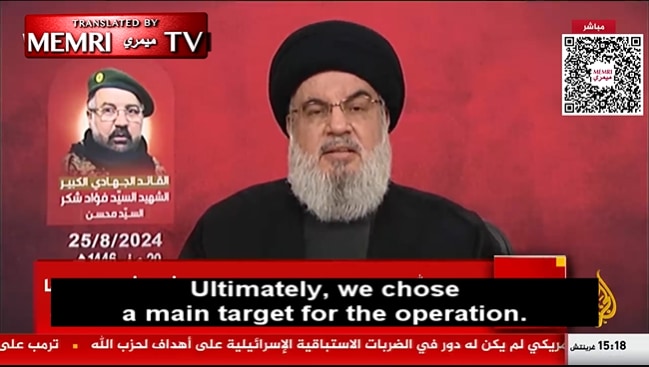
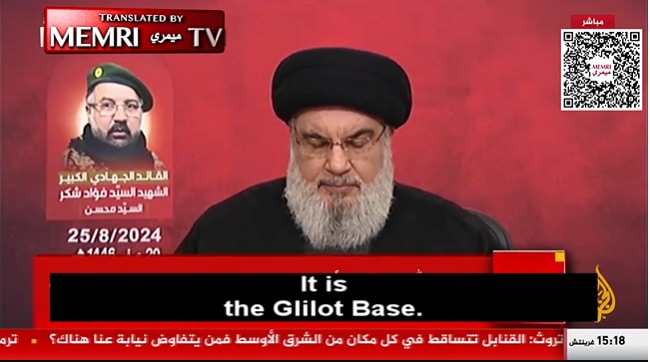
"Today's operation is over. This is our initial response, but is this matter closed? I can tell you, with all transparency, that because of the enemy's secrecy, we will follow the matter, to see what happened in those two bases, and especially in Glilot. We will follow through our sources and obtain the information we can. If the outcome is satisfactory and accomplishes the intended goal, we will consider the retaliation operation for the assassination of the martyr and commander [Fuad Shukr] and for the targeting of the Dahiyeh neighborhood [in Beirut] to be over.
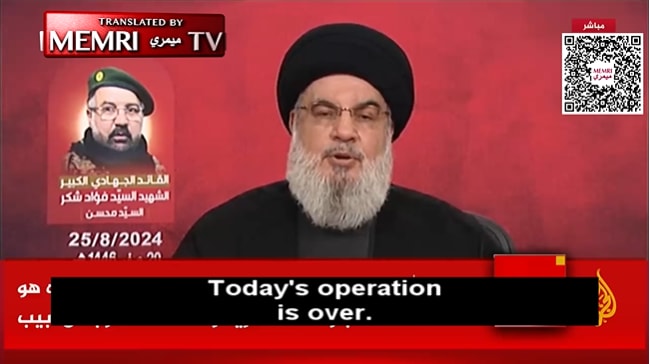
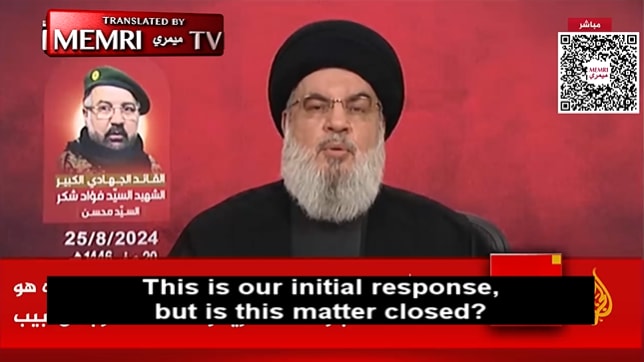
"If the outcome is not satisfactory, in our view, we will reserve our right to retaliate for another time."
